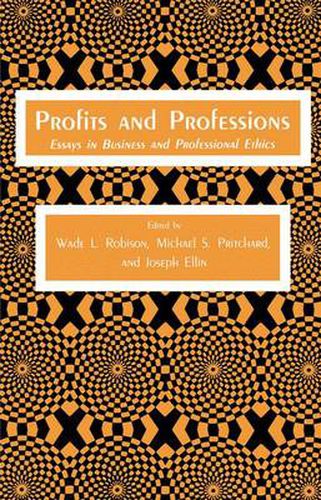Readings Newsletter
Become a Readings Member to make your shopping experience even easier.
Sign in or sign up for free!
You’re not far away from qualifying for FREE standard shipping within Australia
You’ve qualified for FREE standard shipping within Australia
The cart is loading…






This title is printed to order. This book may have been self-published. If so, we cannot guarantee the quality of the content. In the main most books will have gone through the editing process however some may not. We therefore suggest that you be aware of this before ordering this book. If in doubt check either the author or publisher’s details as we are unable to accept any returns unless they are faulty. Please contact us if you have any questions.
Suppose an accountant discovers evidence of shady practices while ex amining the books of a client. What should he or she do? Accountants have a professional obligation to respect the confidentiality of their cli ents’ accounts. But, as an ordinary citizen, our accountant may feel that the authorities ought to be informed. Suppose a physician discov ers that a patient, a bus driver, has a weak heart. If the patient contin ues bus driving even after being informed of the heart condition, should the physician inform the driver’s company? Respect for patient confidentiality would say, no. But what if the driver should suffer a heart attack while on duty, causing an accident in which people are killed or seriously injured? Would the doctor bear some responsibility for these consequences? Special obligations, such as those of confidentiality, apply to any one in business or the professions. These obligations articulate, at least in part, what it is for someone to be, say, an accountant or a physician. Since these obligations are special, they raise a real possibility of con flict with the moral principles we usually accept outside of these spe cial relationships in business and the professions. These conflicts may become more accentuated for a professional who is also a corporate employee-a corporate attorney, an engineer working for a construction company, a nurse working as an employee of a hospital.
$9.00 standard shipping within Australia
FREE standard shipping within Australia for orders over $100.00
Express & International shipping calculated at checkout
This title is printed to order. This book may have been self-published. If so, we cannot guarantee the quality of the content. In the main most books will have gone through the editing process however some may not. We therefore suggest that you be aware of this before ordering this book. If in doubt check either the author or publisher’s details as we are unable to accept any returns unless they are faulty. Please contact us if you have any questions.
Suppose an accountant discovers evidence of shady practices while ex amining the books of a client. What should he or she do? Accountants have a professional obligation to respect the confidentiality of their cli ents’ accounts. But, as an ordinary citizen, our accountant may feel that the authorities ought to be informed. Suppose a physician discov ers that a patient, a bus driver, has a weak heart. If the patient contin ues bus driving even after being informed of the heart condition, should the physician inform the driver’s company? Respect for patient confidentiality would say, no. But what if the driver should suffer a heart attack while on duty, causing an accident in which people are killed or seriously injured? Would the doctor bear some responsibility for these consequences? Special obligations, such as those of confidentiality, apply to any one in business or the professions. These obligations articulate, at least in part, what it is for someone to be, say, an accountant or a physician. Since these obligations are special, they raise a real possibility of con flict with the moral principles we usually accept outside of these spe cial relationships in business and the professions. These conflicts may become more accentuated for a professional who is also a corporate employee-a corporate attorney, an engineer working for a construction company, a nurse working as an employee of a hospital.